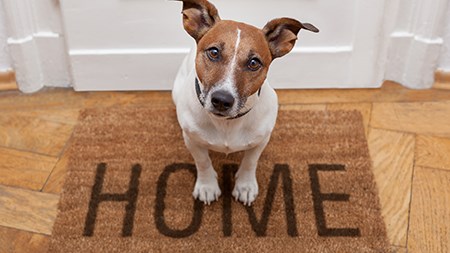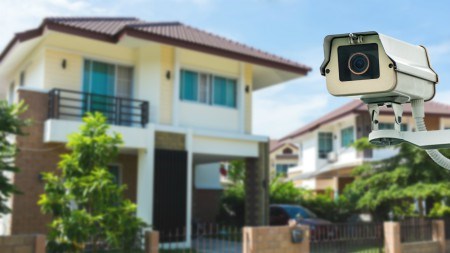An updated version of this article can be found here. (October 2024)
Tenants who wish to move with pets should take certain precautions before signing a lease, in order to avoid rental disputes.
Many of us rent and many of us are pet owners, but the two aren’t always compatible. Finding a home that can accommodate you and your furry tenants without causing trouble down the line can be a tricky situation and is a sensitive topic for most animal lovers who consider their pets a part of the family. To avoid having any unwanted rental disputes, certain precautions must be taken before signing a lease and moving in.
“As a Residential Rental Specialist, I deal with the matter almost monthly,” says Grant Rea at Remax Living. “Many landlords simply disallow pets entirely, eliminating a large percentage of people from their potential pool of tenants. This is a particular issue in Cape Town where many people are ardent pet owners.”
Whose decision is it?
Many tenants argue that if a pet is well-trained and does not cause a disturbance on the landlord’s property, then permission to live with them should be granted. While this may sound like a reasonable request, the property owner still maintains the right to withhold their permission regardless.
“Where a lease is silent on the matter it becomes more complicated, especially if the tenant did not have a pet at the commencement of the lease but acquired one later. In my opinion the landlord would have to demonstrate how the ownership of the pet may be prejudicial to either him or the property. However, there is currently no law that covers any rights to pet ownership in the tenancy scenario. If the landlord agrees to the tenant keeping the pet, it would not be unreasonable for a landlord to ask for an addition to the lease pertaining to the behaviour of the pet and potential damages. So naturally a clause regarding pet ownership is essential in the lease.”
Laying out the rules
It is important for landlords to clearly highlight the terms and conditions regarding the allowance for pets on the property, whether in a ‘pet friendly’ sectional title unit or freestanding home.
For tenants on the other hand, it is most important to be open and clear about the pet situation with your landlord and let them know as much information as possible - from confirmation of sterilisation and inoculation, to breed and temperament. Obtaining written permission before moving into the property is also vital to ensure you’re in the clear and won’t land your furry friends into any trouble.
“Our standard rental agreements are clear on the pet owner/tenant’s responsibility in keeping the pet under control at all times. The tenant also needs to ensure their pet does not cause a nuisance or cause damage, failing which the tenancy may be terminated or the pet needs to be rehomed,” explains Rea.
Sectional title developments
For many sectional title developments, owners are forbidden from keeping any pets on the property as stipulated in the conduct rules. This decision can be overturned however, if explicit permission from the trustees is granted.
“This is becoming less prevalent as developments are simply clamping down on pets being allowed in blocks at all. Often conflict arises when existing pets are seen in the complex and new tenants assume a precedent has been set, so decide to acquire a pet or rent a property without checking on house rules on pets beforehand,” says Rea.
Choose wisely
Considering properties which are listed as pet-friendly is a more reasonable option. Flats and small apartments are generally inadequate for most dogs, but may be suitable for smaller caged animals or cats if they are house trained. “Ideally, as a tenant with a pet, simply avoid properties that are not advertised as being pet friendly,” advises Rea.
“Generally pets can result in much conflict at the end of leases, with dogs often the cause of damage to the gardens, wooden floors and the like. Flea infestations, the remnants of pet hair or foul smells and damage to carpets often crop up too. It is highly advised that landlords request and hold a larger deposit when pets are allowed,” Rea concludes.




